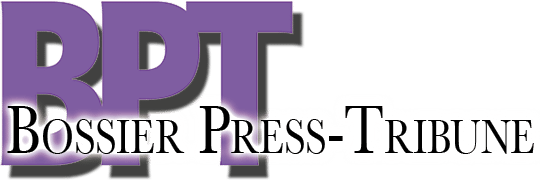By Quinn Marceaux
LSU Manship School News Service
BATON ROUGE–-A sweeping insurance bill advanced through the Senate Insurance Committee
on Wednesday, though tensions flared over a controversial part that would expand the authority
of Insurance Commissioner Tim Temple.
While most lawmakers and insurance representatives praised the bill’s consumer
protections and transparency measures, such as requiring insurers to disclose previous premiums
in sending out renewal notices, some warned that granting Temple more power to reject rate
hikes could backfire.
But supporters of the bill, House Bill 148, argued that bolder changes are necessary to
rein in Louisiana’s sky-high insurance premiums and restore public trust in the system.
As political leaders try to slow the increases in auto insurance premiums, Gov. Jeff
Landry has called on the Legislature to give Temple the power to reject premiums before they go
into effect. Temple said he does not need this power and has cautioned against taking steps that
might prompt insurers to leave the state.
The increase in auto insurance rates is one of the biggest issues this legislative session,
and analysts say Landry could be hurt politically if the problem does not ease.
The bill originated in the House, and most of the debate at the Senate hearing on
Wednesday was over amendments added by House members.
he amendments would eliminate the longstanding legal distinction between competitive
and non-competitive markets, giving the commissioner broad authority to block rates deemed
“excessive, inadequate, or unfairly discriminatory.”
Temple, who supports much of the original bill, said the amendment granting him more
power to block rate hikes misses the mark.
“Premiums are high because losses are high,” said Temple, who was elected on his own
and is not appointed by the governor.
“If we think that we need to take a look at how we regulate insurance rates, then let’s
take a serious dive into it,” Temple said. “Let’s not just pick, you know, portions of one state or
another, or something we saw on social media. I mean, let’s truly dive into this.”
Sen. Royce Duplessis, D-New Orleans, pushed back, suggesting Louisiana’s insurance
crisis demands strong action.
“It’s been repeatedly acknowledged that we’re in a monumental crisis,” Duplessis said to
Temple. “But you don’t believe that we need to do anything outside of legal reform to address
this monumental crisis.”
Sen. Regina Barrow, D-Baton Rouge, echoed frustrations shared by many Louisiana
residents, pointing to her own experience with rising premiums and demanding accountability
from regulators.
“I just got my renewal not long ago from my home, and it was almost doubled,” she said.
“My car insurance went up a little. It wasn’t as bad, but it did go up. Everything has gone up. But
I want to ask you, over the past year and a half or so, what can you point to that has had a direct
correlation to having an impact on lowering the rate, because I don’t see it.”
Independent insurance agents lined up to support Temple.
Danette Castello, representing the Professional Insurance Agents of Louisiana group and
a local agency in Zachary, said the amendment would discourage insurers from entering the
market.
“Giving the authority to one person to subjectively decide whether or not a rate is
justified is a nightmare waiting to happen,” Castello said.
Rep. Chad Brown, D-Plaquemine, who authored the amendment, defended it at the
Senate committee hearing by pointing out that many Southern states already have similar
standards.
“This law, in one way or another, exists in the majority of Southern states that surround
us,” Brown said. “Is it driving them from those states?”
Despite the discussion, committee members agreed to move the bill forward, with
Chairman Sen. Kirk Talbot, R-River Ridge, noting there are five weeks left in the session to
continue refining the legislation.
“I love the original part of the bill,” Talbot said. “The amended part gives me heartburn,
but we’ll work together on it.” His comments suggested there may be further debate on the
Senate floor.
The proposal comes amid a broader, contentious push in the Legislature to address high
car insurance rates. Trial lawyers and business groups have clashed over whether lawsuits or a
lack of regulatory enforcement are to blame, with both sides claiming partial victories in recent
committee votes.
Temple has supported many pro-industry bills, but he has also publicly opposed separate
legislation that would let him block rate hikes without actuarial data. Gov. Landry supports this
move and has threatened to hold Temple responsible if rates do not fall.



